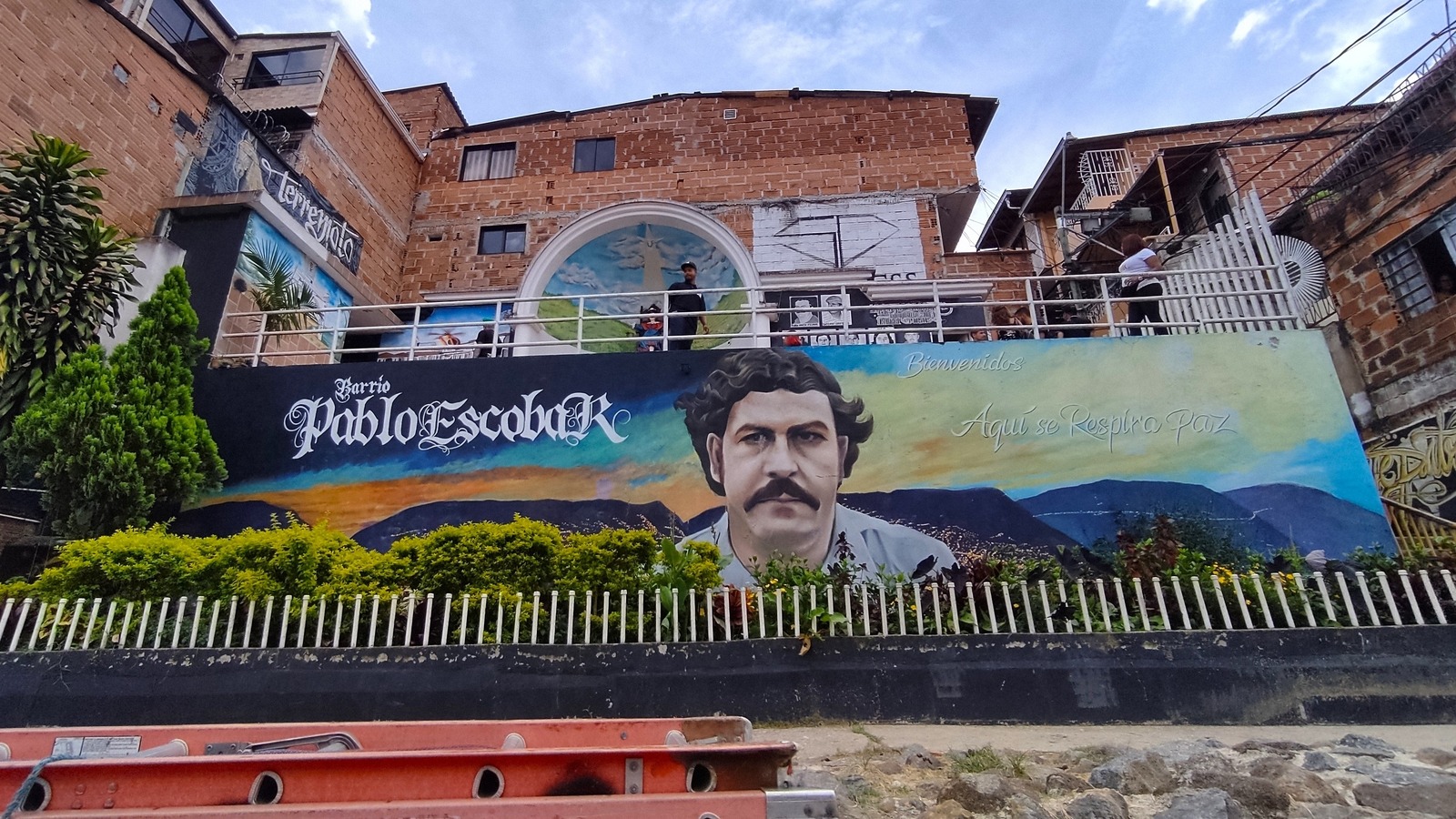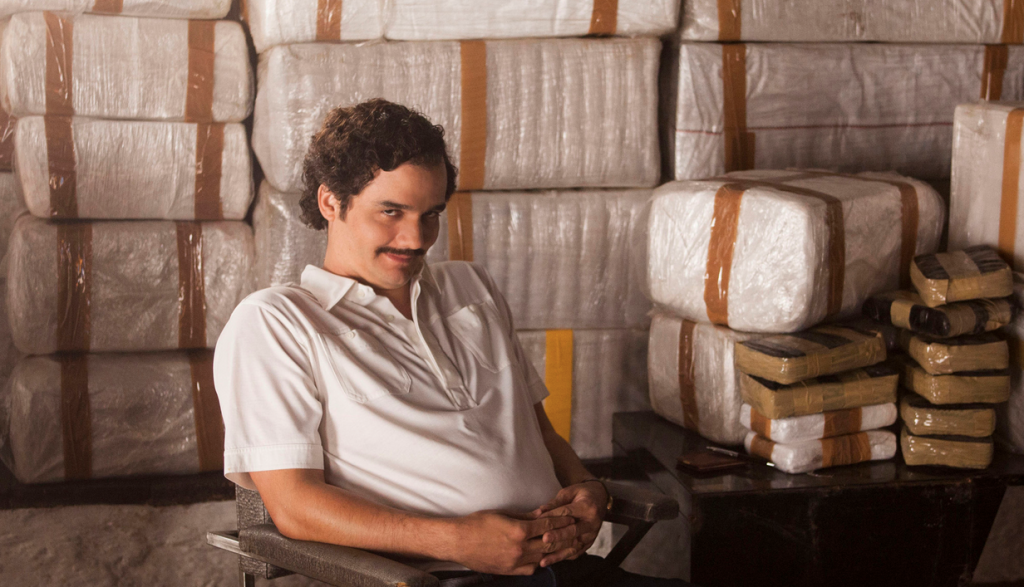So listen up, folks. **What happened to Pablo Escobar** is not just a story—it’s a rollercoaster ride through greed, power, betrayal, and ultimately, death. Imagine a guy who started from nothing, built an empire worth billions, and ended up as one of the most hunted men in history. His life was like a Hollywood blockbuster, except it was all too real. But how did this Colombian kingpin rise so high, and what exactly brought him crashing down? Let’s dive into the chaos.
Now, when people talk about Pablo Escobar, they’re not just throwing around a name. This dude wasn’t just some small-time drug dealer; he was the boss of bosses. At his peak, Escobar controlled around 80% of the global cocaine trade, earning him a spot on Forbes’ list of the richest people in the world. But with great power comes great enemies, and that’s where things got messy.
Here’s the thing: while Escobar may have been a criminal mastermind, his story is also about the human cost of his actions. Thousands of lives were lost, families torn apart, and entire nations destabilized because of his empire. So, what happened to Pablo Escobar? Was it karma, justice, or just plain bad luck? Stick around because we’re about to break it all down.
Read also:Does Megan Moroney Support Trump Exploring Political Views And Influences
Early Life: The Humble Beginnings of a Criminal Genius
Let’s rewind the clock and take a trip back to the early days of Pablo Escobar. Born on December 1, 1949, in Rionegro, Colombia, Escobar didn’t exactly come from wealth or privilege. His family was poor, and he grew up in a modest household. But even as a kid, Escobar showed signs of being different—smart, ambitious, and willing to bend the rules to get ahead. He started small, stealing tombstones and reselling them, but his ambitions grew bigger with time.
By the 1970s, Escobar had transitioned from petty crimes to the drug trade, where he quickly made a name for himself. His rise was fueled by a combination of cunning, fearlessness, and ruthlessness. In a world where trust was rare, Escobar earned loyalty through sheer force of will—or the threat of violence. And that’s how he laid the foundation for what would become one of the most powerful drug cartels in history.
The Medellín Cartel: Building an Empire
How the Medellín Cartel Changed the Game
Fast forward to the late 1970s, and Escobar wasn’t just dabbling in the drug trade—he was running it. The Medellín Cartel, which he co-founded, became the dominant force in the cocaine industry. They didn’t just smuggle drugs; they revolutionized the business. Escobar used planes, submarines, and even go-karts to transport cocaine across borders, making it harder for authorities to catch him.
But it wasn’t just about logistics. Escobar also had a knack for public relations. He positioned himself as a Robin Hood figure, building housing projects and soccer fields for the poor. This earned him love and loyalty from many Colombians, even as he terrorized others. It was a classic good cop, bad cop routine, and it worked like a charm—for a while, at least.
The War on Drugs: Escobar vs. the World
Escobar’s Battle Against the Colombian Government
As Escobar’s empire grew, so did the attention from law enforcement. The Colombian government, backed by the U.S., launched a massive campaign to take him down. But Escobar wasn’t going down without a fight. He declared war on the government, orchestrating bombings, assassinations, and kidnappings. It was a dark time for Colombia, with violence spreading like wildfire.
One of the most infamous incidents was the bombing of Avianca Flight 203 in 1989. Escobar allegedly ordered the attack, which killed 107 people, in an attempt to eliminate a political rival. This act of terrorism shocked the world and solidified Escobar’s reputation as a ruthless killer. But it also made him public enemy number one, both in Colombia and internationally.
Read also:Mandy Patinkin In The Princess Bride A Legendary Performance
Escobar’s Downfall: The Beginning of the End
Operation Just Cause and the Hunt for Escobar
By the early 1990s, the noose was tightening around Escobar’s neck. The Colombian police, working with U.S. agencies like the DEA, formed a special task force called the Search Bloc, dedicated to capturing him. Escobar tried to stay one step ahead, hiding in safe houses and constantly moving to avoid detection. But his days were numbered.
In 1993, things took a turn for the worse for Escobar. His trusted allies began to betray him, and his network of informants was compromised. On December 2, 1993, after a months-long manhunt, Escobar was finally cornered on the rooftop of a house in Medellín. In a shootout with police, he was fatally wounded and died on the spot. Some say he shot himself in the head to avoid capture, while others claim he was killed by officers. Either way, it marked the end of an era.
Pablo Escobar: The Man Behind the Legend
A Closer Look at Escobar’s Personal Life
But who was Pablo Escobar, really? Sure, he was a drug lord, but he was also a husband, a father, and a son. To give you a better picture, here’s a quick rundown of his personal life:
| Full Name | Pablo Emilio Escobar Gaviria |
|---|---|
| Birthdate | December 1, 1949 |
| Place of Birth | Rionegro, Colombia |
| Spouse | Maria Victoria Henao |
| Children | Juan Pablo Escobar (son) and Manuela Escobar (daughter) |
Escobar’s family life was as complicated as his criminal career. He was deeply devoted to his wife and kids, often taking them on luxurious vacations and showering them with gifts. But his violent lifestyle cast a long shadow over their happiness, and his children would later struggle with the legacy of their infamous father.
The Impact of Escobar’s Legacy
How Escobar Changed the Drug Trade Forever
Even after his death, Pablo Escobar’s influence on the drug trade is undeniable. He set the blueprint for modern cartels, showing them how to operate on a global scale. His tactics, both in business and warfare, continue to inspire and terrify those in the industry. But his legacy isn’t just about drugs; it’s about the lasting impact of organized crime on society.
Colombia is still recovering from the scars of Escobar’s reign. The violence he unleashed left deep wounds, and the country continues to grapple with issues like corruption and narco-terrorism. Yet, paradoxically, Escobar is also remembered by some as a folk hero—a man who stood up to the rich and powerful. It’s a complicated legacy, to say the least.
Lessons Learned from Escobar’s Story
What Can We Learn from Escobar’s Rise and Fall?
So, what can we take away from the story of Pablo Escobar? For starters, it’s a cautionary tale about the dangers of unchecked ambition and the allure of quick riches. Escobar’s rise was meteoric, but his fall was just as swift. It’s a reminder that crime doesn’t pay—not in the long run, at least.
But there’s also a lesson here about the human condition. Escobar wasn’t just a villain; he was a complex individual with flaws, strengths, and contradictions. His story shows us that even the most notorious figures are, at their core, human beings capable of both great good and great evil.
Pop Culture and Escobar’s Legacy
Escobar in Movies, TV, and Books
Since his death, Pablo Escobar has become a cultural icon, appearing in countless movies, TV shows, and books. Netflix’s "Narcos" brought his story to a global audience, introducing a new generation to the man who once ruled the cocaine trade. But why are we so fascinated by Escobar? Is it his audacity, his ruthlessness, or the sheer scale of his operations?
Whatever the reason, Escobar’s story continues to captivate us. It’s a tale of ambition, power, and the human cost of greed. And as long as people are interested in crime and corruption, Escobar’s legend will live on.
Conclusion: What Happened to Pablo Escobar?
So, what happened to Pablo Escobar? In short, he lived fast and died young. He rose to the top of the drug trade, amassed a fortune beyond imagination, and became one of the most feared men in the world. But his thirst for power and his willingness to use violence eventually led to his downfall.
As we wrap up this story, let’s take a moment to reflect. Escobar’s life was a tragedy, but it was also a lesson. It reminds us that the pursuit of wealth and power can come at a terrible cost. If you’ve enjoyed this deep dive into Escobar’s world, don’t forget to share your thoughts in the comments below. And hey, if you’re craving more stories like this, check out our other articles on crime, history, and everything in between.
Table of Contents:
Early Life: The Humble Beginnings of a Criminal Genius
The Medellín Cartel: Building an Empire
The War on Drugs: Escobar vs. the World
Escobar’s Downfall: The Beginning of the End
Pablo Escobar: The Man Behind the Legend
The Impact of Escobar’s Legacy
Lessons Learned from Escobar’s Story
Pop Culture and Escobar’s Legacy
Conclusion: What Happened to Pablo Escobar?
And that’s a wrap, folks. Thanks for joining me on this wild ride through the life and times of Pablo Escobar. Keep it real!


